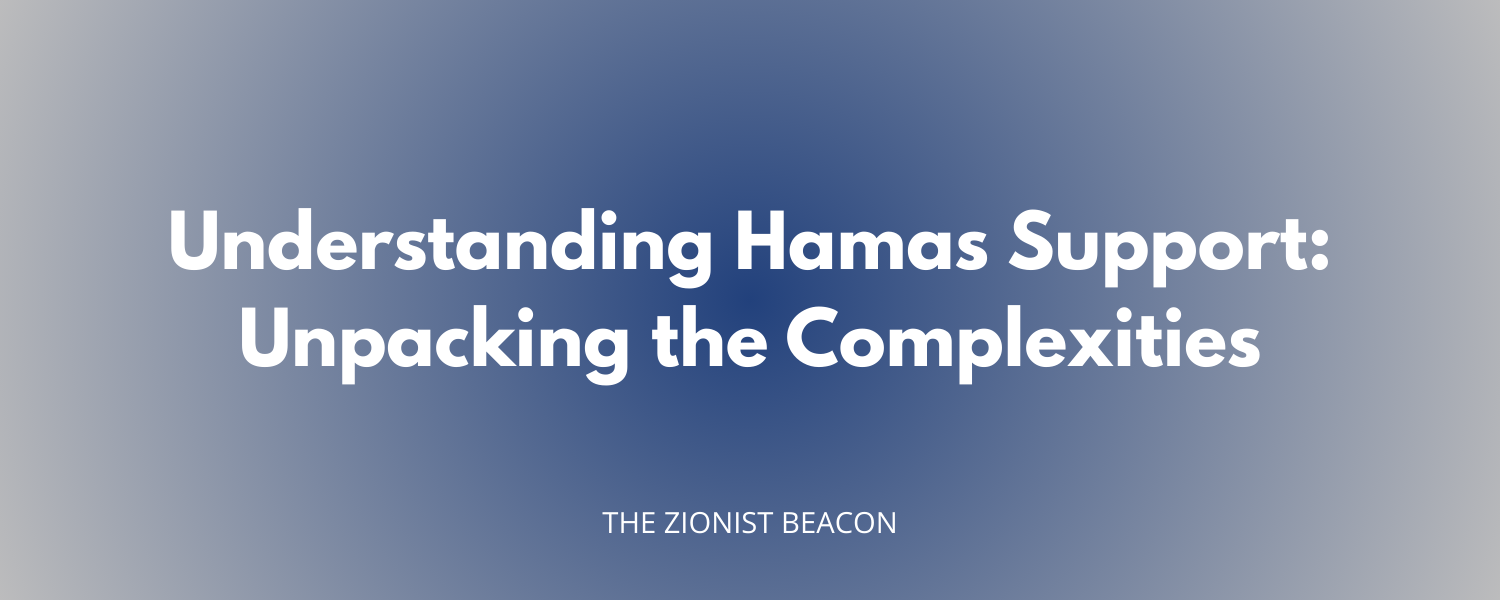Why Some in the
Free World
Support
Terrorist Groups
Have you ever wondered why it is that many people in the Western world, what we call the "free world," support an honest-to-God terrorist group? Well, there are many reasons as to why this happened. Some may be guided by antisemitic sentiments, others may not really know what they are supporting, but let’s go deeper into this, let’s find the true reasons.
1. Going against the grain
We live in the best society ever created by human beings, where systems are stable and dissent is tolerated, so going against the grain can feel like an act of authenticity. If everyone’s prospering or conforming, rejecting that prosperity—or at least its moral underpinnings—becomes a way to stand out. Hamas, with its anti-Western rhetoric and militant defiance, fits the bill as a countercultural symbol. It’s not about the specifics of their ideology (many supporters likely gloss over the details) but the vibe of rebellion it exudes.
2. Us-Versus-Them mindset
Evolutionary psychologists might suggest we’re hardwired for tribal conflict—our brains are built to spot enemies and bond with allies. In a peaceful, individualistic society, that instinct doesn’t fade; it shifts. Terrorist groups, with their clear us-versus-them mindset, provide an instant tribe for the disillusioned. Mix in guilt—living comfortably while others suffer—and you’ve got a powerful draw: a cause that doubles as rebellion and redemption. Research on radicalization shows personal discontent, not just ideology, often fuels extremism. In wealthy societies, that discontent might spring from boredom or alienation rather than hardship. When comfort peaks, a society may start to romanticize struggle. Supporting groups like Hamas can become a symptom of this—a way to latch onto a raw, high-stakes story without ever leaving the safety of a free nation.
3. Foreign Funding on Western Universities
When a country that loves terrorism is funding the education of millions of Americans and the new generations, then it is very probable that those same students end up being far-left woke activists calling for the destruction of the only democracy in the Middle East, where the people they claim to support, like the LGBTQ community, are free to live and do whatever they want, Israel being the only country in the Middle East where they can do that.
4. Vacuum of purpose
In a society like America, for example—where personal freedoms, economic opportunities, and access to education are among the highest in human history—people often experience a paradox of privilege. Basic survival needs are met for many, and the struggles that defined earlier generations (wars, famines, overt oppression) are distant memories or abstract concepts. This creates a vacuum of purpose. Historically, humans have derived meaning from overcoming adversity—whether it’s building a civilization, fighting for survival, or striving for collective goals. In the absence of such struggles, some individuals may seek out causes that give them a sense of moral urgency or identity.
5. Shortcut to significance
In a hyper-connected world, where social media rewards performative morality, aligning with a controversial or radical cause can signal courage, empathy, or intellectual depth. It’s a shortcut to significance. By championing a group like Hamas, they can claim to see through the "propaganda" of mainstream society and assert a higher ethical standard. The backlash they receive from critics only reinforces their stance—it’s proof they’re shaking things up, challenging the status quo, and sacrificing social approval for a "greater truth."
6. Pressure to achieve something meaningful
In a society with endless opportunities, the pressure to achieve something meaningful can be paralyzing. Not everyone has the drive, talent, or circumstances to become an entrepreneur, artist, or innovator.
For some, the freedom to pursue happiness becomes a burden when they don’t know what happiness looks like. Supporting a distant, radical cause fills that void with a prefabricated sense of mission—no need to build something from scratch when you can latch onto an existing "resistance." It’s low-effort purpose: no personal risk, but all the emotional payoff of feeling revolutionary.
----------
I'm not denying that many of these individuals are driven by animosity toward Jews—some certainly are. My point is that their support for a terrorist group like Hamas, which openly seeks to destroy the very land where their protests are held, stems from a combination of underlying reasons. If their lives were truly fulfilling, why would they be so consumed with adopting such radical causes?
